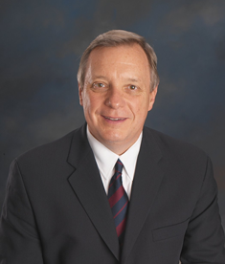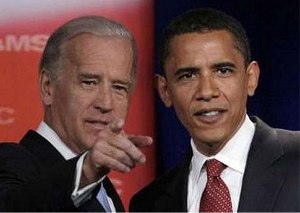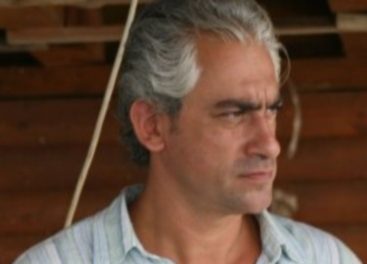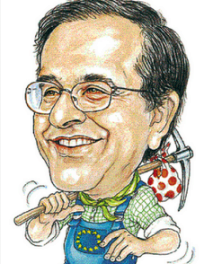Μια ενδιαφέρουσα έρευνα για τον αντιαμερικανισμό στην Τουρκία δημοσιεύεται στην Washingtonpost και στο Newsweek από τον ειδικό αναλυτή Αμάρ Μπακσί. Η έρευνα προχωρά σε βάθος και σ εόλα τα επίπεδα της κοινωνίας της τουρκίας ενώ αναζητά και τις πολιτικές αιτίες που σήμερα ο αντιμαερικανισμό -τον οποίο πλέον δεν μπορεί να παραβλάψει η Αμερική- αρχίζει και γίνεται επικίνδυνος για τα συμφέροντα της υπερδύναμης στην περιοχή. Παρακάτω δημοσιεύουμε ολόκληρη την έρευνα αλλά αξίζει να επισκεφθείτε το site{το παραθέτουμε με ένα απλο κλίκ στον τίτλο του θέματος} ώστε να δούμε πως σκέπτονται και πως σχολιάζουν την πολύ τεκημριωμένη έρευνα που παρατίθεται επίσης με αποκαλυπτικά στοιχεία{μέσω Link} οι Τούρκοι πρώτης, δεύτερης και ενδεχομένως τρίτης γενιάς Αμερικανοί Τουρκικής καταγωγής, αλλά και την διαφορά σκέψης με τους Τούρκους που ζουν σήμερα στην Τουρκία είτε μιλάμε για την πολιτική ελίτ είτε για τους απλούς πολίτες.
How Turkey Sees America
Protesting PKK and carrying a massive Turkish flag. Turkey will turn your preconceptions of how Muslim countries perceive America upside-down.
It's a country whose Islamic political forces are currently aligning themselves more closely with the United States while the staunch secularists turn away. Members of the ruling Islamic Justice and Development Party (AKP) openly praise the U.S. for allowing free public expression of religion. And they make economic liberalization, entry into the European Union, and improved human rights central parts of their platform.
But the secularist old guard, especially within the military, is suspicious of these Islamic parties. They berate the U.S. for tolerating what they see as the gradual Islamization of Turkey. Retired General Edip Baser says that if a more religious Turkey is "part of Bush's 'Greater Middle East Project' to create Islamic democracies across the region," he wants none of it.
The military, along with most of the Turkish population, also blame the U.S. for letting the outlawed Kurdish Workers' Party (PKK) continue to attack southeast Turkey. The PKK is on America's terrorist list, but I heard repeatedly, "America only cares about its own terrorists." The day after I arrived, protesters flooded Istanbul's streets chanting, "Curse the PKK, Curse America!"
Meanwhile, minority groups within Turkey have a bit more nuanced view of America, seeing its support as a double-edged sword. Certain activists among the Kurds and Armenians, for example, think America is an ally in their fight for human and cultural rights. But they worry that if they cuddle too close to the U.S., they could become further alienated from mainstream Turks.
Overt American meddling can make their minority groups look unwilling to give Turkey's democratic process a shot. Worse still, nationalist media can exacerbate the situation by accusing members of a minority community of conspiring with foreign forces to create a separate state for themselves.
This is touchy stuff for Turks. As Karici Yashar, a café owner in Prime Minister Erdogan's home district said bluntly, "The main motivation of all foreign forces is to divide Turkey." After Iraq 2003, Turks definitely consider America one of those forces.
But America is not one thing to all Turks. Poll numbers look dire and homogeneous, yet they cover a great diversity of opinion, some of it more heartening.
Remember: as recently as 2000, the U.S. enjoyed a 52% favorability rating in Turkey. Within six years that percentage dropped to 9%. And 83% of Turks have an unfavorable view of America. These are literally the worst numbers for America on earth.
A young girl named Defne told me that 2003 was the year America turned in her eyes from friend to foe. On that July 4 the "Hood Incident" occurred, shaking Turkey to its core — though it didn't really make headlines in the U.S.
On that U.S. independence day, American soldiers captured eleven Turkish Special Forces operatives in Sulaymaniyah, northern Iraq. They were hooded, interrogated, and after sixty hours of intense diplomatic activity, released.
"You hooded us like terrorists!" says Defne frowning.
But things aren't all bad with America. In the past few years, she says her economic lot has improved. She wants stability for her country now. Bush and Erdogan just met. "If he [Bush] wants to help us … good," she says. "It's about time."
Keen on politics, Defne's young, well-educated, and patriotic. If her feelings toward America are representative of Turkey's future leaders, she offers hope that today's terrible numbers can turn around fast. After all, she notes, both nations now want a stable Iraq that curbs terrorists and engages in regional trade.
Three weeks in Turkey have exploded many of my preconceptions. But Defne's hopes for her country sound familiar — a lot like what I hear from Americans back home.



















